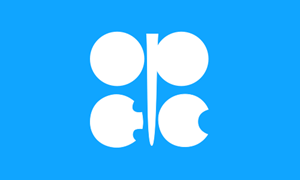The volatile politics of OPEC actually steadied oil production in April
WASHINGTON (Bloomberg) -- OPEC nations' volatile politics meant that oil production from the cartel held steady last month, as losses in some members were offset by gains in others.
Iran’s output slumped once again as the U.S. government moved to tighten sanctions, while Libya’s rose as it revived its biggest oil field following local unrest, according to a Bloomberg survey of officials, analysts and ship-tracking data.
The 14 members of the Organization of Petroleum Exporting Countries pumped 30.3 MMbopd in April, 25,000 a day more than in March, the survey showed. The cartel and its allies have been keeping supply restrained since the start of the year to prevent a glut, and continued with the effort last month.
Oil prices hit a six-month high of more than $75/bbl in London last week, as the strategy by some members of the group to reduce supply is compounded by unintended output losses and risks in others.
Saudi Arabia, the group’s de facto leader, trimmed output further even as President Donald Trump tightened his crackdown on the kingdom’s political nemesis, Iran. Although Trump said Riyadh and its partners are prepared to offset lost Iranian supplies, Saudi Energy Minister Khalid Al-Falih has signaled the country won’t rush to open the taps.
American penalties for nations dealing with Iran will widen from Thursday, when exemptions that currently allow several countries to keep purchasing Iranian crude expire. The survey showed the toll this is taking on the Islamic republic’s production, which fell by 80,000 bopd to 2.63 MMbpd.
Angolan output also fell in April, by 60,000 bopd to 1.38 MMbpd, the lowest in Bloomberg data extending back to 2007. Though the African nation is starting a new facility, Kaombo, the initial gains are being erased by ongoing natural declines at other fields, according to consultant JBC Energy GmbH.
Offsetting these losses was a recovery in Libya, which restored output at its Sharara oilfield despite a new wave of political instability. Production rose by 90,000 bopd to 1.19 MMbpd. As military commander Khalifa Haftar continues his campaign to take the capital, reportedly with the blessing of the White House, analysts are doubtful about how long the improvement in supplies can endure.
Another political crisis is flaring in member nation Venezuela, where the political opposition launched an uprising against President Nicolas Maduro on Tuesday with the endorsement of the U.S. government. Though the attempt appeared to falter, the Latin American country’s production is already at the lowest in more than a decade and remains vulnerable to further unrest.
Despite output disruptions across OPEC, Saudi Arabia has signaled it will likely keep supply restrained. Energy Minister Al-Falih told news agency RIA Novosti this week that the producer group and its partners may extend their pact to restrain production when it expires in June. The kingdom reduced output by 30,000 bopd to 9.79 MMbpd last month, the survey showed.
The Saudis and other key members of the OPEC coalition will meet for a review of global markets in Jeddah later this month, before ministers settle on policy for the second half of the year in late June.



